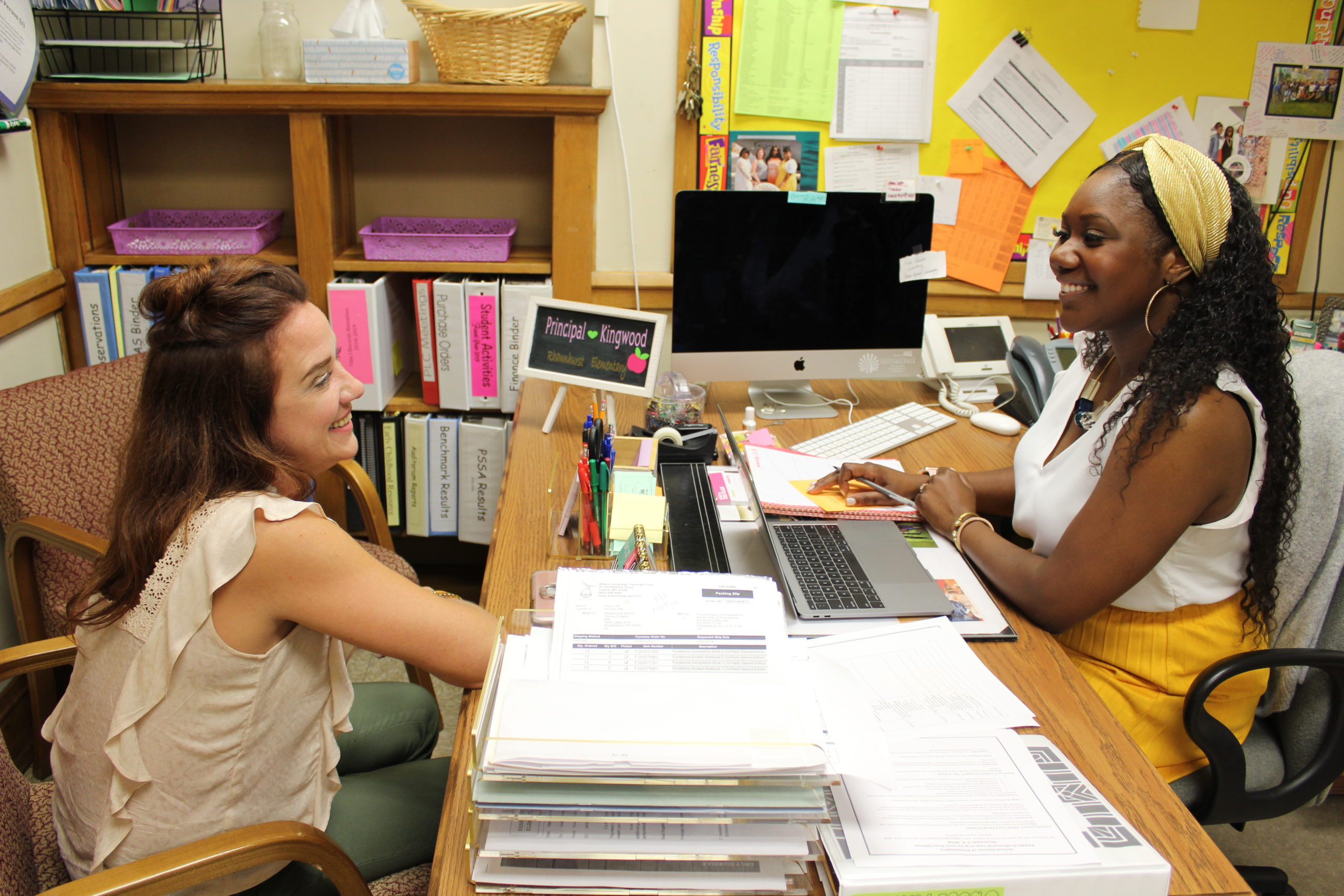Parent-Teacher Conferences
As a parent, you are your child’s number one advocate. Parent-teacher conferences allow you to talk with teachers, principals, and other school personnel about what is happening in your child’s life and at school. Through these conversations, you can get support from your child’s school and plan steps for moving forward.
Scheduling a Parent-Teacher Conference
Parent-teacher conferences are often already scheduled at the beginning of the school year and during mid-year evaluations. However, you can request a parent-teacher conference on your own. Contact your child’s teachers and schedule a date and time that works for you.
Preparing for a Parent-Teacher Conference
To prepare for a parent-teacher conference, consider your biggest concerns.
Difficulties at Home
Are there things happening at home that may be impacting the student’s performance? If so, think through which t for the teacher to know. Additionally consider what supports your child may need at this moment.
Individualized Education Plan (IEP)
Do you want your child to be evaluated for an individualized education plan? If this is the case talk to your child’s teacher to gain a clearer picture of your child’s performance in class and/or interactions with peers. From there, the teacher can help you prepare for an IEP meeting. If your child already has an IEP and the conditions of the plan are not being met, schedule a meeting with the teacher and the school immediately. The school cannot deny your child the right to an appropriate education.
Learn more about special education and your child’s rights with these articles:Understanding Special Education: The Basics
Understanding Special Education: Tips for Parents and Caregivers
Translator Needed
If English is not your first language, you have a right to a translator. A week before the conference, contact your child’s school to request a translator in your language. You can also call the Office of Family and Community Engagement (FACE) at 215-400-4180.
Learn more about English-Language support with these articles:
Understanding English Learner (EL) Education: The Basics
Understanding Special Education: Services Checklist
General Performance Concerns
If your child is under-performing in class or has complained that the work is not on target, you will want to provide examples to discuss with the teacher. Talk to your child about what is occurring in class and take notes of what you want to address. Additionally, monitor your child’s performance by checking homework assignments and reviewing their most recent report card. Bringing these examples with you to the conference will help you and the teacher decide what is the best way to move forward.
The Actual Conference:
Using the notes and assignments gathered in preparation for the conference, provide context to the teacher about your concerns relating to difficulties at home, IEPs, language accommodations, or general concerns. This allows the teacher to understand your concerns and respond to them. After context is provided, the teacher can then answer additionstions. Examples of great questions to ask are below:
Learning:
What is my child learning in class?
What is my child excelling in?
Where can my child improve?
What academic or social-emotional supports does my child need?
Social-Emotional Learning:
How does my child work with others?
How does my child react to being challenged academically?
Are there opportunities for my child to be creative in class?
Staying Involved:
What is the best way to stay in contact with you?
How can I get involved in the school?
How can I help my child continue learning at home?
If you are utilizing a translator during the conference, ask clarifying questions of your translator to ensure you are getting the most complete and accurate translation possible.
After the Conference:
If all of your questions were not answered during the parent-teacher conference, it is important to follow-up and schedule another conference, if necessary. If your concerns are related to IEPs, English language learning, or the safety of your child, schedule a meeting with the principal or guidance counselor. If you are concerned that your child cannot thrive at their current school, you may want to consider a different school. Use greatphillyschools.org to research your school options.
We hope that this list of suggested questions will encourage you to attend a parent-teacher conference soon!
More information
Looking for more information on finding a great school? See all articles here.
Sign up for our GreatPhillySchools mailing list to stay in the loop and receive updates about application deadlines, learning resources for students, schools with open seats, events and more.




